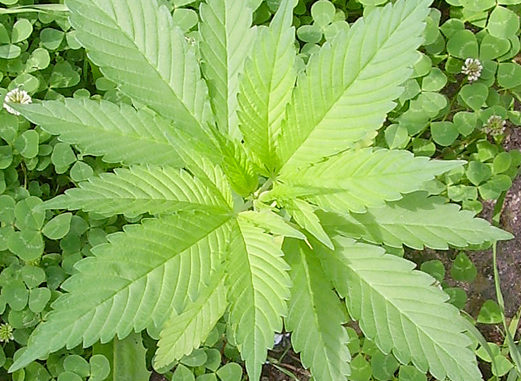
In November Arizonans had a full ballot of issues to decide. Among them, legalization of Marijuana. Arizona already has legalized medical Marijuana and although this proposition was defeated, I’m sure it will be back on a future ballot. While proponents and opponents argue over the taxation and regulation of the industry as well as the effects on employers, no one is addressing the very real personal property rights issues, particularly real estate. Potentially both owners and tenants could be affected and not even realize it.
My concern, Marijuana is illegal in Federal Law. If Arizona legalizes the drug, what is the potential for the Federal Government to punish property owners? The proponents provide a copy of Deputy Attorney General James Cole’s August 2013 letter. They maintain this letter should put to rest property owner worries, but it heightened my concerns. The letter goes about trying to allow, but not really allow, state laws to contradict federal law. The state laws must contain “robust controls and procedures” that do not diminish the federal law or the Department of Justice’s stated 8 enforcement priorities. Federal lands are still off limits, but the closing paragraph sums up the Department of Justice’s stance:
That doesn’t sound good for property owners or for the State of Arizona.
Now read what the Marijuana Resource Center says on the White House website:
• “ It is important to recognize that these state marijuana laws do not change the fact that using marijuana continues to be an offense under Federal law.”
• “ The Department of Justice (DOJ) is committed to enforcing the Controlled Substances Act (CSA)…”
CSA is the Controlled Substances Act. You might want to read section 853 if you own property. It’s not ambiguous at all. In short property used for illegal drug purposes is forfeited. If you have read the papers or paid attention to the news over the past 35 years you know the government seizes property of unknowing property owners. Think about the reports of cars being confiscated at the border when the person driving wasn’t the owner and the owner had no idea drugs were in the vehicle.

If you are a tenant you may be concerned as well if you receive any money or benefits from the federal government. Understand “benefit” is a broad term. If you are a tenant on section 8 or social security, you may not be able to use the legalized marijuana. What about other benefits such as food assistance? From my reading that would count as well. As you think about all the money funneled into this state from the federal government in the form of block grants and other grants, it becomes a bit daunting.
But what about homeowners? Well, when I read the government documents my understanding is federal funds are off limits to people violating the CSA. So, if you are a homeowner who purchased their house with a government backed loan like FHA, VA or Fannie Mae, will you be able to take advantage of the legalization without jeopardizing your property ownership rights? I’d sure want to get a legal opinion for that.
In fact, it is the ambiguous nature of the DOJ letter that most concerns me. No standards or sources of data are mentioned. No means of discerning who amongst the identified law breakers will be pursued and who will not. Simply stating that DOJ will prosecute cases they think will interfere with their current 8 priority enforcement issues is not a standard. The law is clear, the guidance is not.
In December 2015, GAO (Government Accounting Office) released an audit of the DOJ’s enforcement actions and guidance over the past several years. The report notes that in 2009 DOJ instructed field agencies to focus on investigating and prosecuting significant drug traffickers and their networks, but in 2011 the Office of the Attorney General issued additional guidance stating the 2009 memo did not shield commercial marijuana operations. Between 2007 and 2013, DEA sent warning letters to about 1900 owners and lien holders of medical marijuana dispensaries in California, Colorado, Oregon and Washington due to the growth of the commercial medical marijuana industry. The audit further tells of states and local municipalities using the USAO (U.S. Attorney) to help reduce the numbers of dispensaries with the issuance of warning letters. This affects both commercial property owners and dispensary tenants.
In short, DOJ can and will change its priorities for enforcement as they deem fit. States and local governments will use the federal government and CSA to control the blossoming marijuana business. Actions not prosecuted today may be prosecuted tomorrow.
There is a lot of information in the GAO report. It is a good starting point for anyone wanting to better understand the private property risks before voting in November. #legalizedmarijuana

